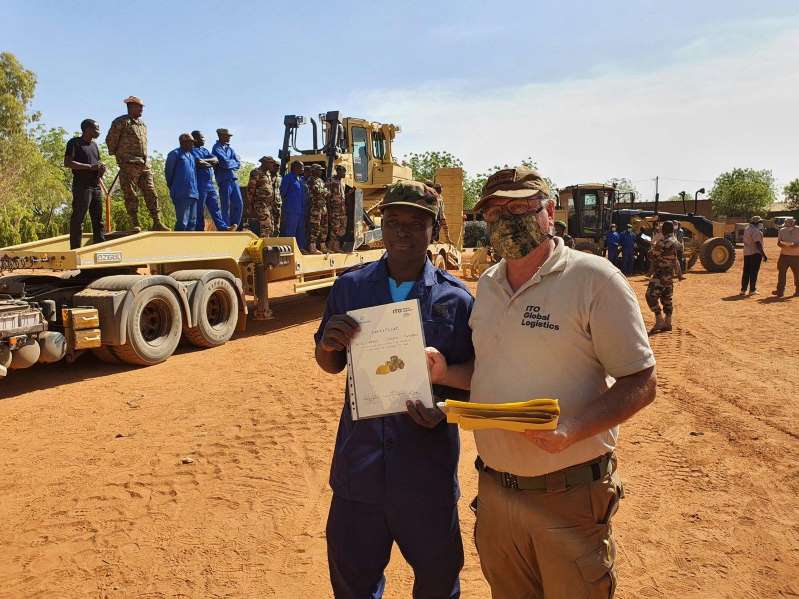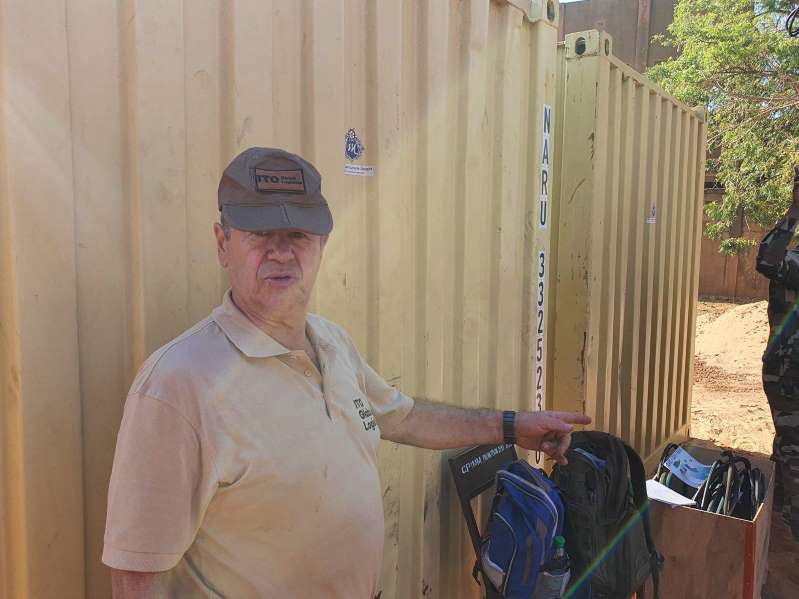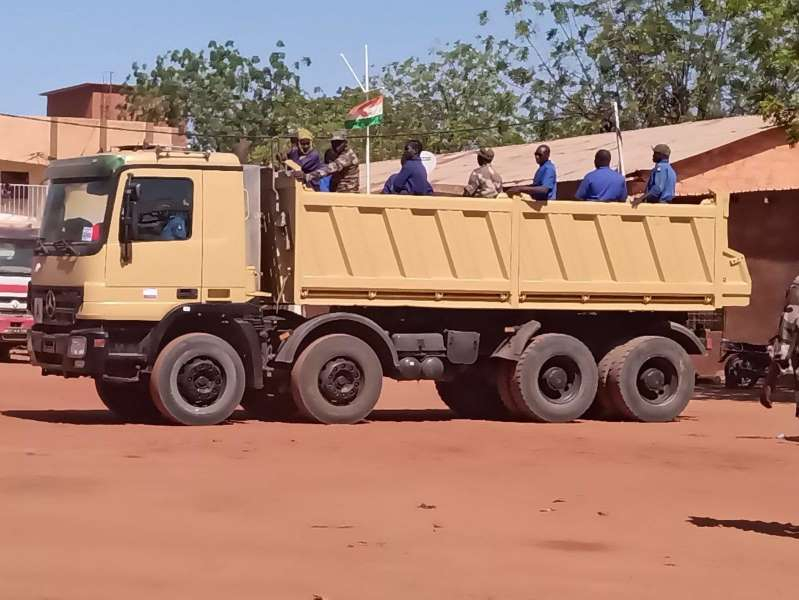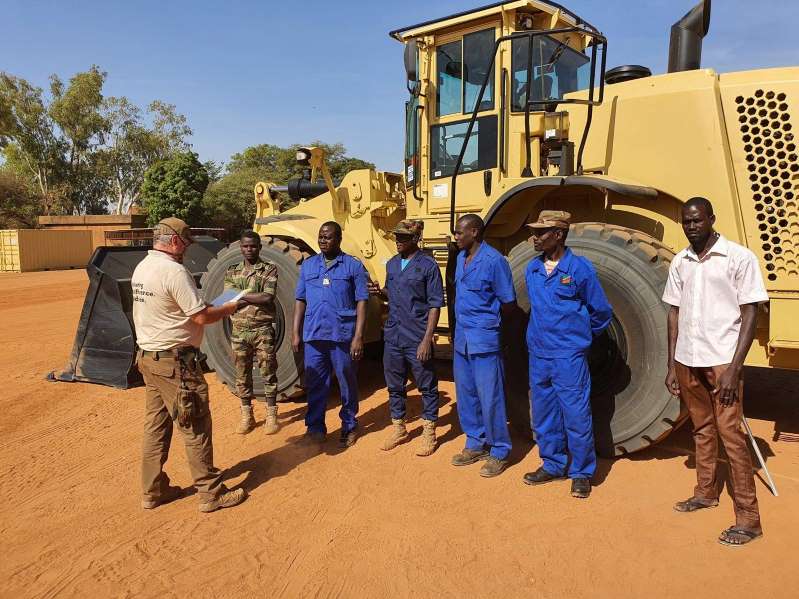Günther Gutmann from Lower Austria trained soldiers in Niger to use construction machinery. He came back Corona-positive.

Christoph Lechner (r.) Has been working in West Africa for years. He works closely with the German Bundeswehr.
Günther Gutmann spent the last ten days of 2020 in quarantine. With a dry cough and pneumonia. Nevertheless, he took the time to tell the KURIER – by phone – about his three-week assignment in Niger.
Did he expect to be infected with Corona? “You have to reckon with everything,” Gutmann replies. “But I would do it again. I am incorrigible. ”

Before his retirement, Günther Gutmann was in the army and head of the Army Transport Institute at the Army Logistics School.
The incorrigible development worker from Traiskirchen-Müllendorf (Baden district) was a full-time colonel in the armed forces and for 20 years was head of the military vehicle institute at the military logistics school. Gutmann has been retired for three years and has the knowledge and time. For this reason, his former colleague Christoph Lechner asked him whether Gutmann would like to help with a development project in Niger for three weeks.
The German Federal Armed Forces have made road construction, water and well drilling equipment available to the West African Republic as part of an upgrade program. Lechner runs a company in Melk that offers all kinds of technical services in rugged areas. He is supposed to teach the Nigerien soldiers how to use the machines on site.
Gutmann agreed. It was not his first such assignment: In October the 66-year-old was in Tunisia for a week and trained the Tunisian National Guard on quad-like vehicles to reinforce the border protection. But this time in Niger, 39 degrees Celsius, acute diarrhea and a positive PCR test awaited him on his return.
Life in the sand
According to Gutmann's reports, a large part of Niger consists of sand: “Only the main roads are paved. One moves mainly on motorcycles, donkeys and camels. ”

The training of the Nigerien soldiers lasted three weeks.
The group of five from Austria and Germany worked with the soldiers for three weeks. Gutmann explained the operation of the vehicles in English, and an interpreter translated.
“I don't care at all whether I train a Nigerien or Austrian soldier. It is important that my knowledge is accepted. It was. There you become a soldier so that you can support your family. It's a different world, ”reports Gutmann.
Lechner is regularly out and about in the region. In neighboring Mali, he has built several sewage and sewage treatment plants. The Bundeswehr is also strongly represented there. Not entirely selfless, of course: The larger, political goal behind humanitarian aid is to counteract migration to Europe.
A stable future
Lechner was positively surprised by Niger: “The capital was clean, you can see many schools and children in school uniforms. Niamey seems to be stabilizing. ”Nevertheless, the republic is considered one of the poorest countries in the world. For years it has taken last place in the Human Development Index.

The soldiers were taught how to use road construction, water and well drilling equipment.
“Islamist organizations and rebel troops who want to start wars here can only be defeated through stability,” Lechner is certain.
“For me, Africa is the continent of the future. Not because of its resources or because you can make good money there. Africa is partly the most digitized market of all. Everyone has a smartphone, everything is done over the Internet. Every cent that is invested there with good will makes sense. But it takes more coordination. If the western countries act here without consultation, it makes little sense, ”Lechner criticizes.
Gutmann also agrees, but knows: “Our work is a drop in the ocean.” And yet he would go down again.
Some things are stronger than Corona after all.

